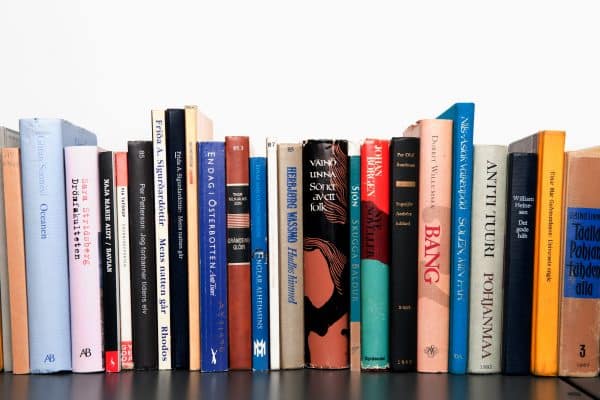Lawrence in Arabia: A Fresh Look at the Old Story
Reviewed by Jim Miles British officer T.E. Lawrence mobilized Arab irregulars to fight against the Turks in exchange for independence. His promises were quickly broken by the British government. Some biographers argue that Lawrence knew about the betrayal all along. Every very seldom often a book comes along that greatly exceeds expectations. Lawrence in Arabia is one of those books. Scott Anderson’s writing is highly entertaining and highly informative at the same time. It reads in a way that gives the impression more that it is a spy novel rather than an historical study. It is more than just about Thomas Edward Lawrence, although he is the character who all the others orbit around in this perspective. It includes a cast of characters that are wonderfully fallible and incompetent - liars, deceivers, manipulators - at their imperial best. Cast of Characters The cast of characters is broadly known for most people who have read histories of World War I, its precedents and aftermaths. Scott Anderson made a wonderful effort in researching the main characters who travelled through the Middle East, sometimes encountering each other, always on the move, always looking for their advantage. Going in alphabetical order, Aaron Aaronsohn comes first. He is described as an optimist, arrogant, and intelligent, and agronomist who set up many research projects in Palestine mostly to further interest in a Jewish state in the region. He worked both sides, initially serving the Ottoman Empire (of which he was citizen) and later setting up a spy network that proved very effective, but was generally ignored by the British until very late in the war. The French had their local spy with Colonel Édouard Brémond who handled French policy in the region. As he “juggled two largely contradictory agendas” he came across to Mark Sykes (see below) as having a “deliberately perverse attitude and policy.” Ahmed Djemal Pasha served as the Governor of Syria - Syria at that time incorporating most of the modern states of the Middle East. His managerial style was “mercurial” as he “Forever oscillated between raging severity and gentle magnanimity, often within the same conversation, he often kept everyone around him permanently off balance.” Germany had its representative in the Ottoman Empire, Curt Prüfer, the German Oriental Secretary. As head of German intelligence for the region, he was also their master spy, described as being a “consummate charmer” and a “notorious seducer.” Another one keeping people off balance, Mark Sykes, a British politician and diplomatic advisor on the Middle East, played a strong role in this nest of manipulators. He had a “breezy arrogance”, “was an aristocratic gadfly...and also a liar.” While he had a “fecund mind” he was “forever contradicting positions or policies he had advocated earlier - often mere days earlier.” And what would the war be without an American State Department “special agent”? William Yale, of the family establishing Yale University, served two other roles: that of military attaché to the Egyptian Expeditionary Force (British), as well as continuing his ‘normal’ line of work as a more or less regular employee of Standard Oil. ‘Other’ Characters There are of course many other characters, but the above listed assortment carry the main narrative. The most important ‘other’ (as they are mostly considered by western narratives) were the Arab contacts that Lawrence and his coterie interacted with in many different capacities, but always trying to manipulate them to their own advantage. Faisal Ibn Hussein, Emir of the Hejaz, had to deal with all the double dealings of people like Sykes. At the same time he had many separate Arab tribes and villages he had to work with, ibn Saud being his chief rival. His son Abdullah ibn Huissein played a significant role in the area Lawrence operated in. After the war his dreams and plans for an Arab state were quickly demolished by British and French interests in the region. As for the British cast of characters, Lawrence thought very little of them. The military is viewed as having “impregnable walls of military idiocy,” - how little things have changed! For the diplomats and politicians they are seen as self-serving, without imagination, essentially a rather dull minded set of people. Once upon a time in Palestine... As with most good mystery/spy novels, the cast of characters come together at the end of the story and the various deceits and lies are worked out. All these characters presented themselves at Versailles, where the “war to end all wars” essentially established the setup for WW II and our current situation in the Middle East. While this is a story of Lawrence in Arabia, it serves amazingly well as an historical review of Palestinian history in that era and how the various factors came together to create the British Palestinian Mandate with vague authorization to settle Jewish immigrants in Palestine. Mark Sykes played a significant role in this, while he conceded “Arab, Christian and Moslems alike would fight in the matter to the last man against Jewish Dominion in Palestine,” he wanted to use “Zionism as a pro-British vehicle in Palestine”, and held meetings with leading British Zionists without the knowledge of either the Foreign Office or the War Department. The Sykes-Picot agreement, negotiated in relative secrecy, and in contradiction to the McMahon-Hussein Agreement, played a pivotal role in the final Versailles settlements. Aaronsohn played a significant role, and while he did not advocate fighting per se, he did support force, “The ultimate future of Palestine...was not a British protectorate in which a Jewish minority would be protected, but a de facto Jewish nation. This would be achieved both politically and economically, with Zionists simply buying up all the land between Gaza and Haifa and forcing the fellaheen from the land.” William Yale wrote of Lawrence’s concerns that “the Arabs have no faith in the word of England and of France, and that they believe only such territory they are able to secure by [their own] force of arms will belong to them.” Lawrence later reflected that in one of his “most prescient comments..that ‘if a Jewish state is to be created in Palestine, it will have to be done by force of arms and maintained by force of arms amid an overwhelmingly hostile population.’” Well beyond the story of one person, “Lawrence in Arabia” is a finely crafted work providing interesting details and lively characters in these highly significant years for the development of our modern geopolitical world. As an historical spy ‘novel’ it would be a great addition to history classes relating to any of the dimensions discussed above (and more). It can stand alone as a reference and as such creates a level of intrigue and interest leading to the reader wanting and needing to make further inquiries into that history. Alternatively, it is an excellent and necessary perspective on the normally drab histories covering this period of time. It makes history interesting, bringing it down to the very human level of personalities with all their abilities and all their faults - and all the repercussions still active today.![]() TGP's Book Reviews
TGP's Book Reviews

 Jim Miles is a Canadian educator living in British Columbia. He writes regularly about the Middle East and its militarization and economic subjugation. His concerns include the commodification of the world by corporate governance and the American government. He writes book reviews and opinion pieces which are published here, as well as in The Palestine Chronicle and Foreign Policy Journal. His work is widely distributed across the Internet."
Jim Miles is a Canadian educator living in British Columbia. He writes regularly about the Middle East and its militarization and economic subjugation. His concerns include the commodification of the world by corporate governance and the American government. He writes book reviews and opinion pieces which are published here, as well as in The Palestine Chronicle and Foreign Policy Journal. His work is widely distributed across the Internet."The views expressed herein are solely those of the author and may or may not reflect those of The Greanville Post. However, we do think they are important enough to be transmitted to a wider audience.
YOU ARE FREE TO REPRODUCE THIS ARTICLE PROVIDED YOU GIVE PROPER CREDIT TO THE GREANVILLE POST
VIA A BACK LIVE LINK.
![]()
